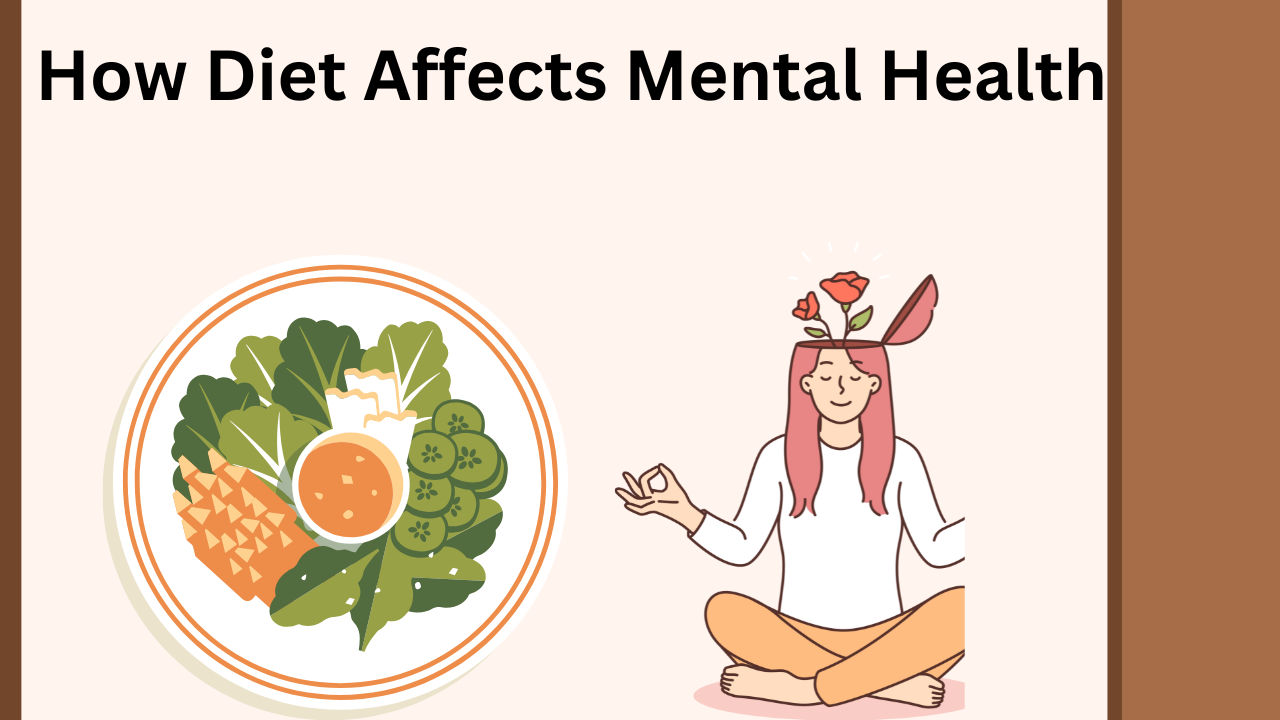When we consider diet, our brain frequently jumps to actual well-being — weight management, cardiovascular health, or muscle gain. Notwithstanding, developing exploration uncovers that what we eat essentially influences emotional well-being too. The association between diet and state of mind, perception, and profound prosperity has turned into a point for emotional wellness experts. It just so happens, that the food sources we devour can straightforwardly impact how we feel and think, forming our in general mental state.

The Gut-Brain Connection
One of the most charming areas of examination into diet and psychological well-being lies in the stomach-cerebrum association. The stomach, frequently alluded to as the “second cerebrum,” houses an intricate arrangement of neurons and significantly affects the mind’s movement. Home to trillions of microorganisms assumes an imperative part in keeping up with both physical and psychological well-being. These stomach microorganisms, or the microbiome, produce synapses like serotonin, which is vital for mindset guidelines.

Truth be told, around 90% of serotonin is delivered in the stomach, not the cerebrum. This features the significance of keeping a decent, solid stomach. At the point when the stomach microbiome is upset — because of a horrible eating routine, stress, or absence of rest — it can prompt changes in cerebrum capability and state of mind, adding to emotional well-being problems like gloom, nervousness, and, surprisingly, mental degradation.
Foods That Boost Mental Health
The food we eat can directly support the production of brain chemicals that regulate mood and mental clarity. Here are some examples of foods that promote mental well-being:
omega-3 Rich Food sources: Omega-3 unsaturated fats, found in fatty fishlike salmon, sardines, and mackerel, are critical for mind capability. Studies propose that omega-3s can assist with diminishing side effects of melancholy and uneasiness by supporting synapse construction and capability.
Whole grains: Complex carbs, for example, those found in entire grains like oats, quinoa, and brown rice, give a consistent wellspring of glucose, the cerebrum’s fundamental fuel. Entire grains assist with controlling glucose levels, which thusly influences temperament solidness and mental energy.

Mixed Greens and Vegetables: Vegetables like spinach, kale, and broccoli are plentiful in folate, a B-nutrient that assumes a part in creating cerebrum synthetic substances like dopamine. Low degrees of folate have been connected to emotional well-being issues like misery.
Fermented Food varieties: Food varieties like yogurt, kimchi, sauerkraut, and kefir contain probiotics that assist with keeping a sound stomach microbiome. These probiotics can advance the development of serotonin, adding to a further developed mindset and decreased nervousness levels.
Berries and Cell Reinforcement Rich Natural products: Blueberries, strawberries, and different natural products rich in cancer prevention agents can safeguard the cerebrum from oxidative pressure, which has been connected to mental deterioration and mindset problems. These organic products can assist with diminishing irritation in the cerebrum, prompting better mental capability.
Foods to Avoid for Better Mental Health
While certain food varieties advance mind well-being, others can make the opposite difference. Profoundly handled food varieties, high in sugar, refined starches, and undesirable fats, can adversely affect the cerebrum. Here is a gander at a few normal offenders:
Refined Sugar: Consuming a lot of sugar can prompt glucose spikes and crashes, causing emotional episodes, crabbiness, and mental weariness. Over the long haul, a high-sugar diet can impede mind capability and increment the gamble of creating psychological wellness conditions like discouragement.

Trans Fats: These undesirable fats, frequently tracked down in handled heated merchandise, broiled food varieties, and margarine, have been connected to aggravation in the cerebrum. Constant irritation is remembered to assume a critical part in the improvement of mental problems, including wretchedness and nervousness.
Caffeine and alcohol: While caffeine might give an impermanent jolt of energy, it can likewise prompt sensations of uneasiness, fretfulness, and upset rest. Essentially, liquor is a depressant and can adversely influence mindset, impede mental capability, and increment the gamble of psychological well-being problems over the long haul.
The Role of Hydration
We frequently neglect the significance of hydration for psychological well-being. Lack of hydration can prompt weariness, peevishness, and trouble concentrating. The cerebrum is comprised of around 75% water, and sufficient hydration is fundamental for keeping up with legitimate mind capability and close-to-home soundness. Drinking sufficient water over the course of the day upholds mental cycles and manages mindset, taking into consideration better mental clearness and close-to-home strength.

The Impact of a Balanced Diet
A balanced diet, rich in whole, nutrient-dense foods, supports the complex biochemical processes that govern mental health. The body’s ability to produce neurotransmitters, regulate hormones, and maintain optimal brain function is heavily influenced by diet. Therefore, when we nourish our bodies with the right foods, we support not only physical health but also emotional and psychological well-being.
The connection between diet and mental health is clear—what we eat affects how we feel. A nutrient-rich diet can improve mood, cognition, and emotional stability, while poor dietary habits can contribute to mental health issues. By making mindful choices about the foods we consume, we can promote better mental health and live happier, more fulfilling lives.
The connection between diet and mental health is evident. What we eat directly impacts how we feel, with a nutrient-rich diet benefiting mood, cognition, and emotional stability. Conversely, poor dietary habits can contribute to mental health issues. By mindfully selecting our food choices, we can promote better mental health and enhance our overall well-being.
